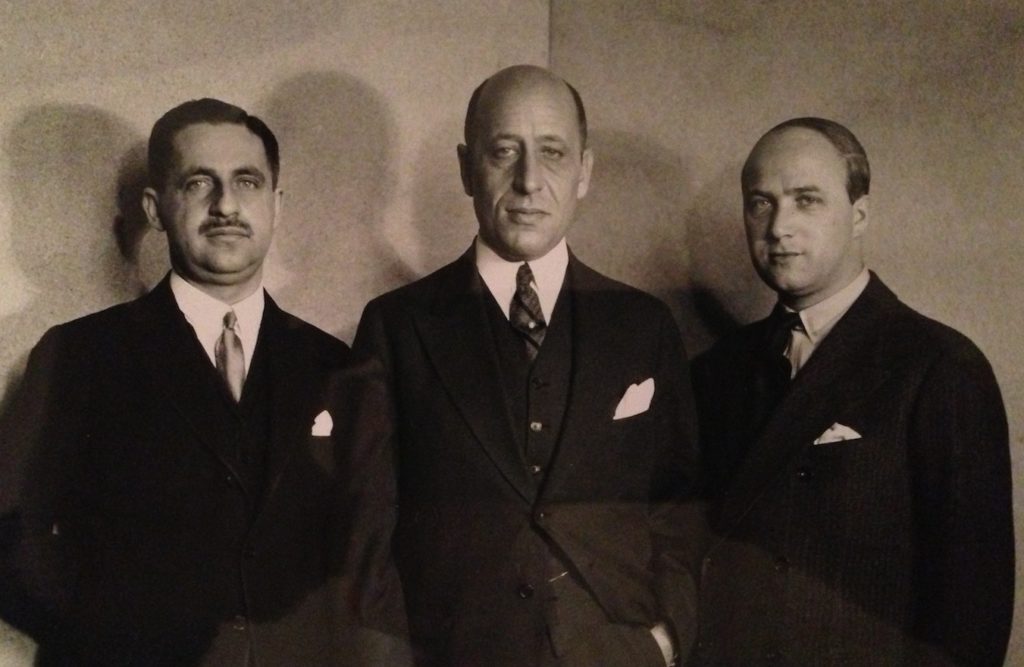Germany sued for return of medieval collection sold to Nazis
Published February 24, 2015

From left, Zacharias Max Hackenbroch, Julius Falk Goldschmidt and Saemy Rosenberg, three of the Jewish collectors who purchased the Welfenschatz treasure in 1929.
ADVERTISEMENT
Feb 23 (JTA) — Heirs of four Jewish art collectors filed suit against Germany to regain a medieval gold treasure they claim was forcibly sold to the Nazis in 1935.
Alan Phillip and Gerald Stiebel filed their claim on Monday against Germany and the
Prussian Cultural Heritage Foundation in U.S. District Court for the District of Columbia. They are demanding the return of a collection known as the Welfenschatz, or “Guelph Treasure,” whose value
they estimate at approximately $227 million.
The treasure, which a consortium of collectors bought in 1929 as an investment, originally included 82 pieces. The plaintiffs are seeking the return of the portion sold to Hermann Goering, Hitler’s deputy, in 1935.
The Prussian Cultural Heritage Foundation could not immediately be reached for comment. But on Saturday, the foundation’s president, Hermann Parzinger, announced that the state of Berlin had formally entered the Welfenschatz into the national registry of valuable cultural assets, which prevents it from leaving the country without permission from the Minister of State for Culture.
The lawsuit comes one year after a German advisory board for Holocaust-related claims, the Limbach Commission, rejected a claim by Phillip and Stiebel that the 1935 sale had been forced. The commission recommended that the Prussian Cultural Heritage Foundation retain the treasure, which is on display at Berlin’s Bode Museum.
“Germany feels itself to be and is regarded as a moral compass in the field of looted art,” Markus Stoetzel, another attorney for the plaintiffs, said on Monday. “But it is not.”
In their suit, the plaintiffs called the 1935 sale a “sham transaction” carried out by the Dresdner Bank acting for Goering and Hitler. They claim the price paid for the collection, 4.25 million Reichsmarks, was at best 35 percent of its value at the time, and perhaps as low as 15 percent.
“The transaction relied on the atmosphere of early Nazi terror, in which German Jews could never be arms’-length commercial actors,” the suit claims.
![]()













